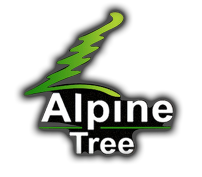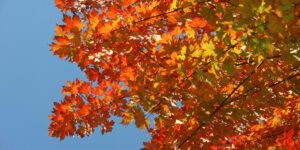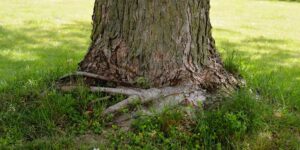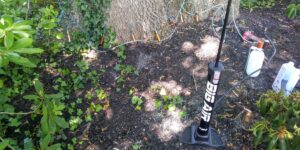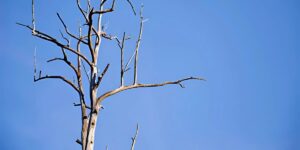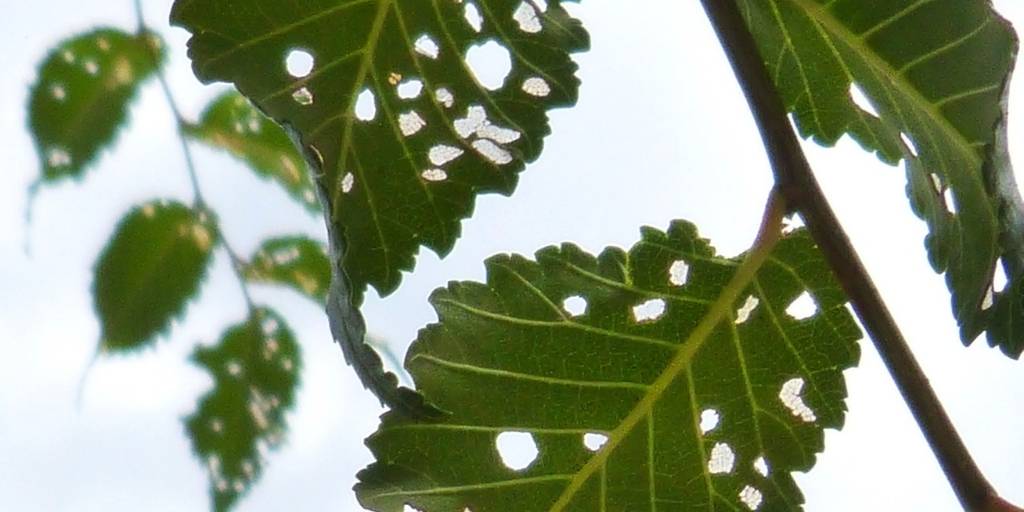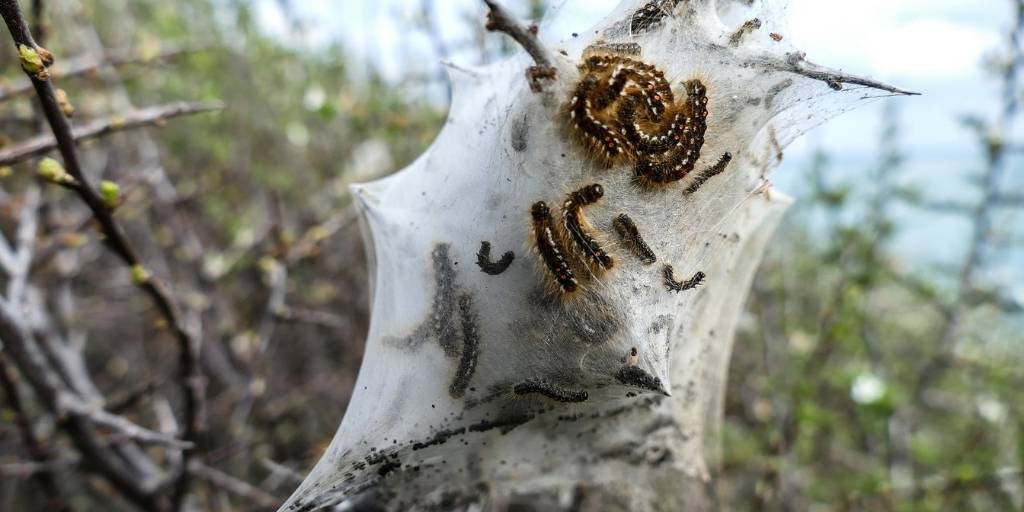We have many destructive tree pests in Morristown, Madison, and surrounding areas of central New Jersey (like emerald ash borer and spotted lanternfly). There are also many deadly tree diseases, although they don’t get as much publicity as the brightly-colored insects! However, both insect pests and fungal or bacterial diseases affect a wide range of deciduous and evergreen trees across our region.
So, what can you do to maintain a healthy, beautiful landscape with minimal use of potentially toxic chemicals?
We encourage you to take a measured approach to plant health care. Rather than applying pesticides and fungicides according to some predetermined schedule, apply them as preventive treatments at the exact time when they’ll be most effective.
Knowing when common pests and diseases are likely to appear on your trees is a critical piece of that. It allows you to use the least toxic treatments at the right time based on insect life cycles and disease progression.
This approach, called Integrated Pest Management (IPM), is highly successful in controlling tree-related pests and diseases. Plus, it’s safer for people, pets, and the environment. IPM also saves you money that you may have otherwise spent on unnecessary pesticides.
See why we can’t schedule pest and disease treatments based on just the calendar >>
Common Tree Pests & Diseases
Some of the most common tree problems in our part of New Jersey include:
- Fireblight – Causes dying branch tips in apple, pear, and crabapple trees
- Chlorosis – Yellow tree leaves with green veins
- Emerald Ash Borer – Once infested with EAB, ash trees die quickly
- Scale Insects – Scale looks like white or brownish dots on the trunks and stems of declining trees
- Apple Scab – Blotchy leaves and dropping/rotted fruit on apples and crabapples
- Cedar-Apple Rust / Hawthorn Apple Rust – Spotted leaves and rotted fruit on apples, crabapples, and hawthorns
- Boxwood Leafminer – Yellowing, blistered leaves and small orange midges flying around the shrub in spring
- Japanese Beetles – Beetles that quickly devour leaves, giving them a lace-like appearance
- Hemlock Woolly Adelgid – Tiny sap-sucking insects that quickly kill hemlock trees
- Bagworm – Leaf-eating caterpillars that can totally defoliate a tree
- Eastern Tent Caterpillar (and Fall Webworm) – Leaf-eating caterpillars that can easily defoliate an entire tree
- Spider Mites – Tiny spider-like creatures that suck the juice out of leaves, causing dead spots and killing leaves
Each of these has a specific timeframe during which prevention or treatment is most effective.
Oak wilt may not still in New Jersey, but you can learn about it now to know how to prevent it>>
However, it’s not just a simple matter of putting dates on a calendar. Instead, we look at environmental conditions (such as growing degree days) to determine the appropriate treatment window – and it changes slightly each year, depending on conditions.
Generally speaking, though, you can plan treatments in advance based on a knowledge of the approximate timing for specific problems.
Typical Timing for Pest & Disease Treatments
Below is a list of tree pests and diseases that we commonly treat, divided by the typical timing during each season. Keep in mind that these timeframes are approximate!
Late Winter/ Early Spring (February, March)
- Spruce Gall Aphids (dormant oil treatment)
- Scale Insects (dormant oil treatment)
- Hemlock Woolly Adelgid (horticultural oil spray to control eggs and crawlers, helping to prevent premature needles browning and needle drop, dieback, and premature death of the hemlock)
Spring (April, May, early June)
- Fungal activity on dogwoods
- Anthracnose on sycamore and white oaks
- Leaf spot on laurels and rhododendron
- Eastern Tent Caterpillar (often found on cherry, apple, and plum trees)
- Emerald Ash Borer (foliar spray and soil injection)
- Birch and Holly Leaf Miner (trunk spray, foliar spray or injection)
- Ticks & Mosquitoes
- Apple Cedar Rust and Hawthorn Cedar Rust
- Fire Blight
- Spider Mites
Fungicide treatments are usually applied three times for maximum effectiveness:
- early spring (April),
- mid-spring (early May), and
- late spring (May/June).
Summer (late June, July, August)
- Dogwood & Rhododendron Borers (trunk spray or injection)
- Cankerworms
- Gypsy Moths
- Aphids
- Bronze Birch Borer
- Mealybugs
- Spider Mites
- Scale Insects
- Spotted Lanternfly
- Ticks & Mosquitoes
Fall (September, October, November)
- Hemlock Woolly Adelgid (to control overwintering eggs, helping to prevent the emergence of crawlers in spring)
- Ticks & Mosquitoes
- Bronze Birch Borer
- Fall Webworm
- Scale Insects
And, of course, there are many other pests and diseases that can be effectively controlled or prevented by a Certified Arborist (too many to go into in this article!).
Need Help for Your Trees?
If you’ve had a problem with any of these pests or diseases in the past, it’s a good idea to bring in an arborist to inspect your tree(s), recommend a treatment, and get you onto the Tree Health Management schedule.
Depending on the issue, you may have to wait for next year – we won’t waste your money or risk environmental injury by applying treatments at the wrong time of year.
And if you’re not sure what’s wrong with your tree(s), just give us a call! We’ll take a look at your tree(s) to diagnose the problem and let you know the best way to remedy it.
